One-Tank Trip: Moonlight and magic to be found at Fort McAllister State Park
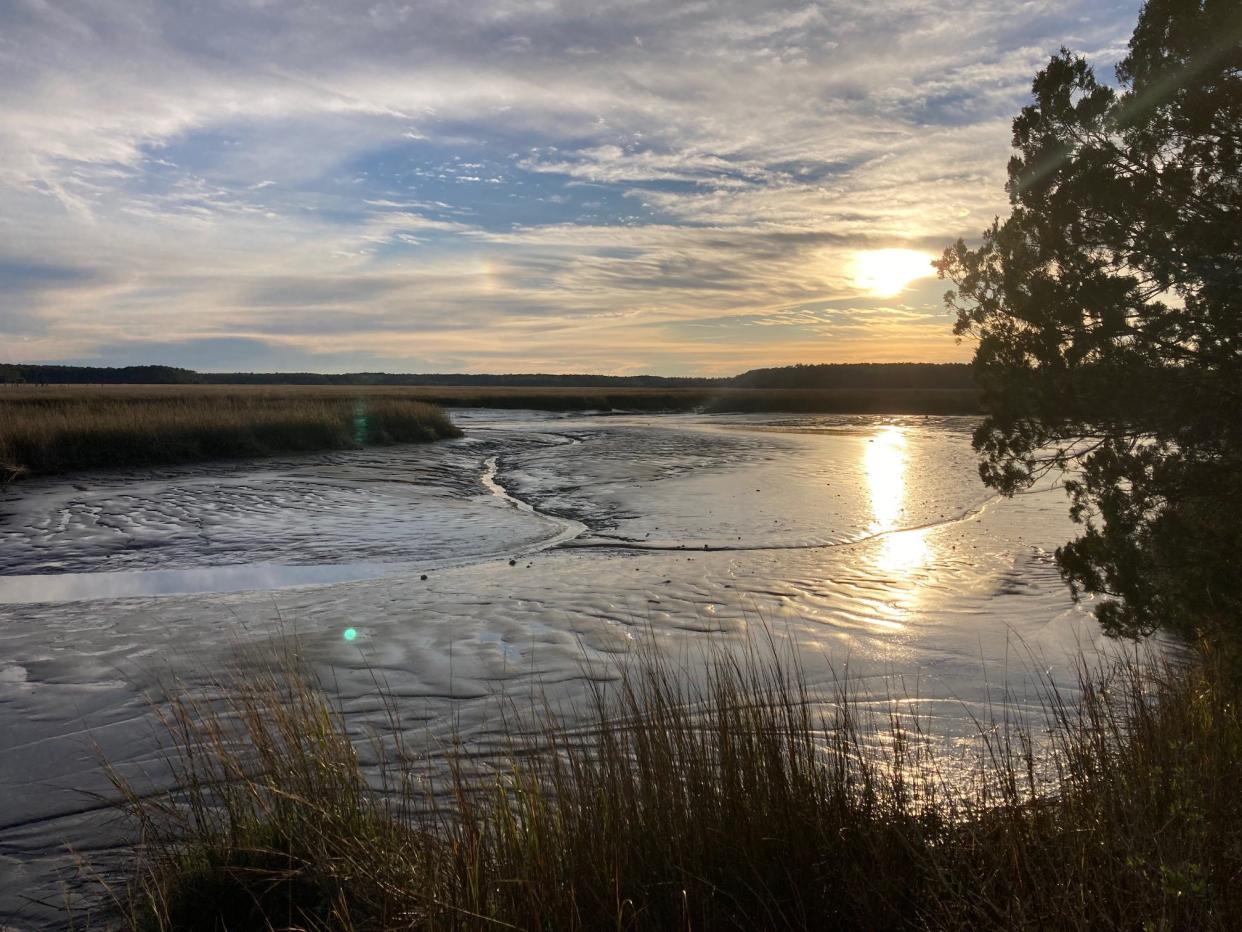
Full disclosure: present-day places owing their existence to the confederacy leave a hard pit in my stomach. Fort McAllister State Park, once a strategic Civil War outpost, is one such place I’ve avoided partially for this reason. That, and Skidaway Island State Park is so much closer to the Hostess City with similar marshes and maritime forests.
But there’s more to this historic park than its beginnings on the losing-side-of-history. Built in 1861, Fort McAllister was one of Savannah’s primary shields, along with Fort Pulaski and Fort Jackson, against the Union naval blockade anchored off the coast. The fort withstood seven separate ship attacks before meeting its match in December 1864 when General William T. Sherman and his infantry overpowered Fort McAllister in a mere 15-minute battle. Union forces then claimed the city of Savannah without resistance.
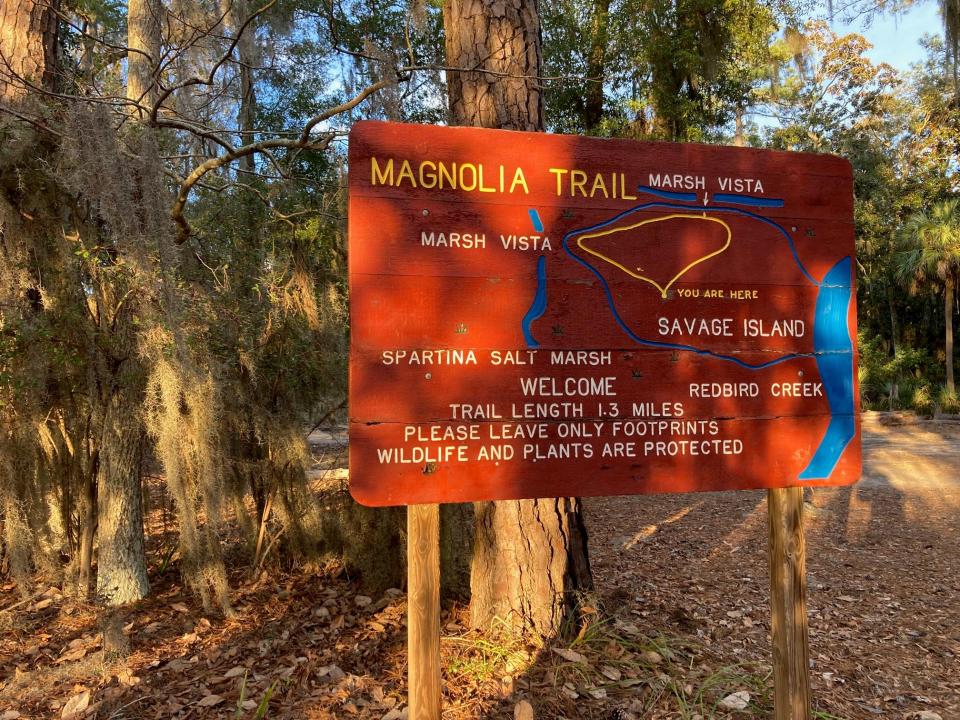
In the late 1930s, Henry Ford bought the property intending to restore it. Twenty years later, in 1958, International Paper Co. then purchased it and gifted the fort to the State of Georgia. Once listed on the National Register of Historic Places and joined with nearby Richmond Hill State Park, the combination was officially designated as Fort McAllister State Park in 1970.
Roughly 30 miles south of Savannah, driving to the park these days takes anywhere from 40 to 50 minutes depending on traffic and road construction. But once you’ve checked in and tented up, it’s an unexpected opportunity to experience nature in near seclusion.
On a Tuesday in mid-February, I booked an overnight tent spot for $36. The campground has 52 RV sites and just 12 tent camping spaces. Locals looking for a little weekend getaway can count on the slow months of January and February for ample tent and RV space, but in summer, the campground becomes booked to capacity.
I checked in around 2 p.m. then headed off to set up my tent, a trusty, faded-red Target store bargain still in service six years after its purchase. Once up and camp items secured, it was time to explore the park. Though several RV campers were scattered around, only one other family had pitched a tent. And we were easily 500 hundred feet away from each other.
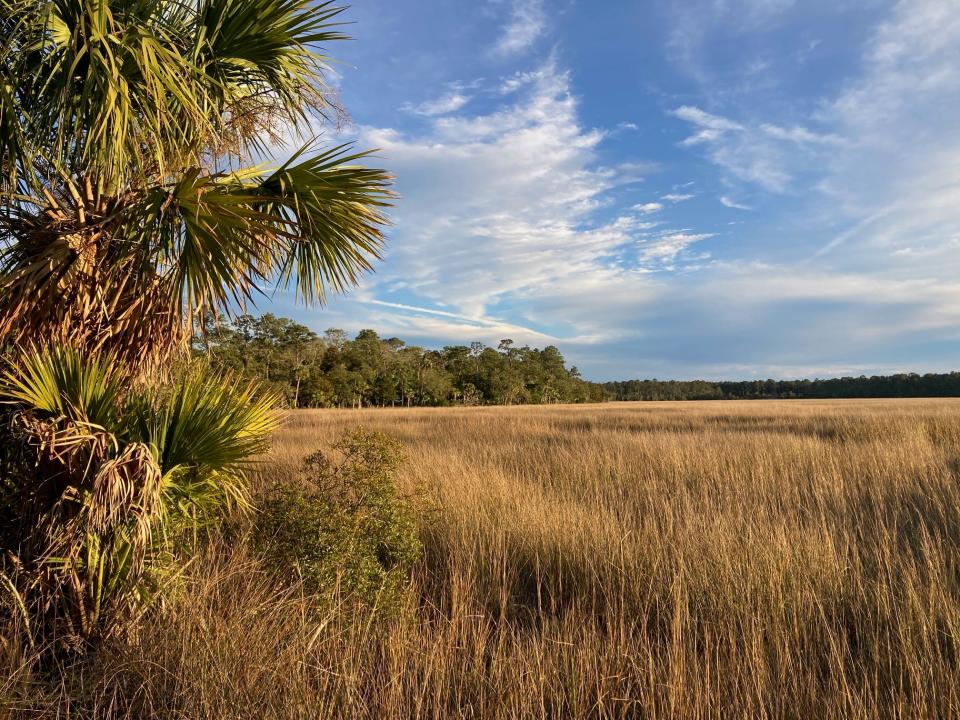
I set out on the one-mile Magnolia Trail loop behind the tents where low afternoon sun warmed wrens and pine warblers flitting among pines in the glow. 30-minutes’ walking and I saw no other people.
Where the Magnolia Trail connects back to the paved campground road, I spotted a group of deer. At first the six adult females and two fawns kept their distance. But one of the older animals began walking toward me. I pulled out my phone to document, but as she drew near, I put the phone back in my pocket to let the experience unfold. I spoke softly to them.
Slowly, two adult female deer got within inches of my outstretched arm. I’d eased closer to them as well so that we were in the middle of the road when the rumble of an advancing RV scattered all of them back towards the edge of the forest.
The golden moment was broken.
As mystical as it seemed, I knew it wasn’t magic but habituation to humans that brought us so close. The deer approached because I might have had food to share.
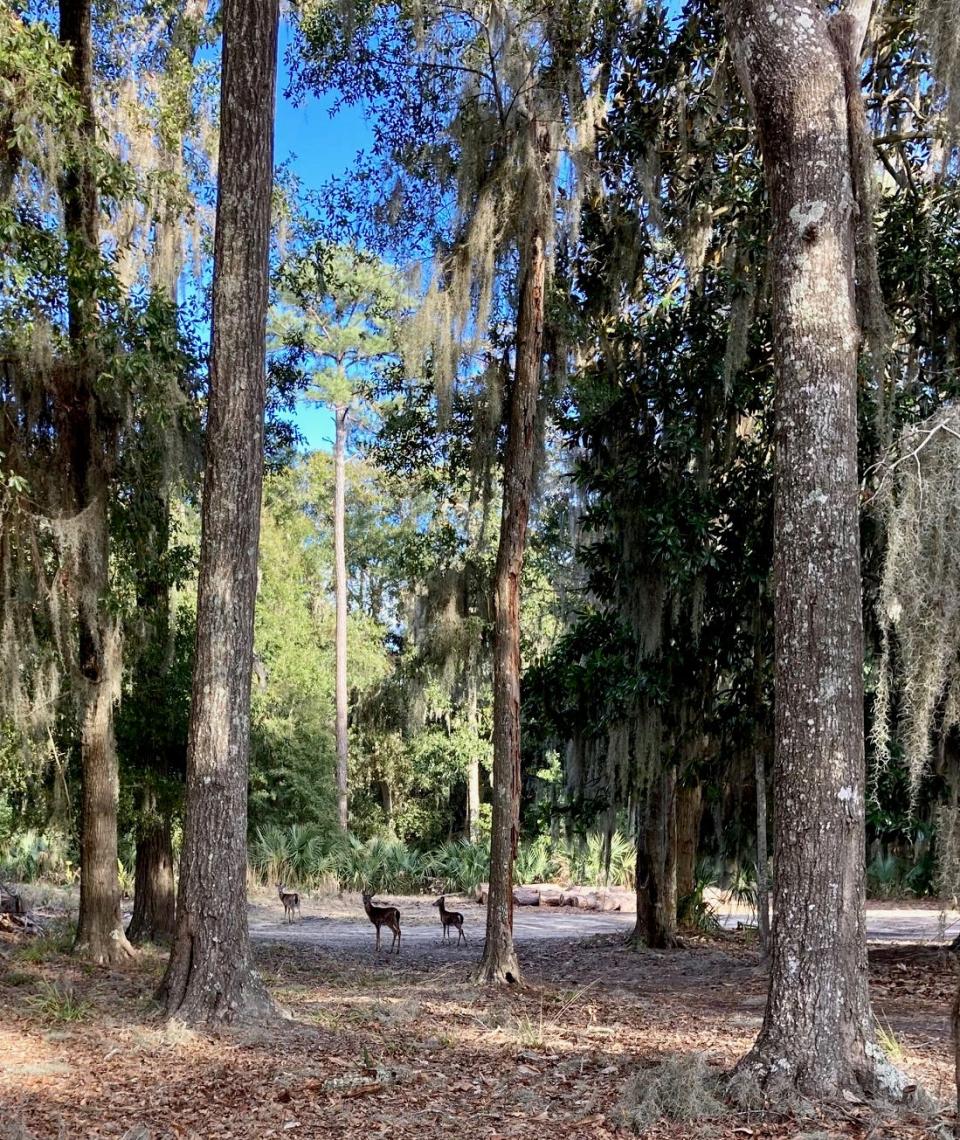
And it’s such a double-edged sword. Being that close to wild animals—a chance to look deeply into their dark eyes, see their glistening noses and hear them breathing. But really, they should be terrified of me and all humans and stay far, far away from us. Although many love deer, racoons, squirrels, opossums, alligators and all the birds, many others don’t, and strategically—because there’s millions of dollars to be made—supplant these animals’ habitats with strip malls, parking lots and mega warehousing facilities.
With so much habitat destruction, perhaps feeding them isn’t so bad. How else will they eat? Will we even have wild deer, opossums, rabbits, racoons in 20 years?
Back at my tent, pondering the uneasy philosophical implications of feeding wild animals, I realized I’d left my camp stove and mess kit at home, which meant the night’s meal would either be granola bars and dark chocolate, or I could venture up the road two miles and grab dinner at Fish Tales seafood restaurant.
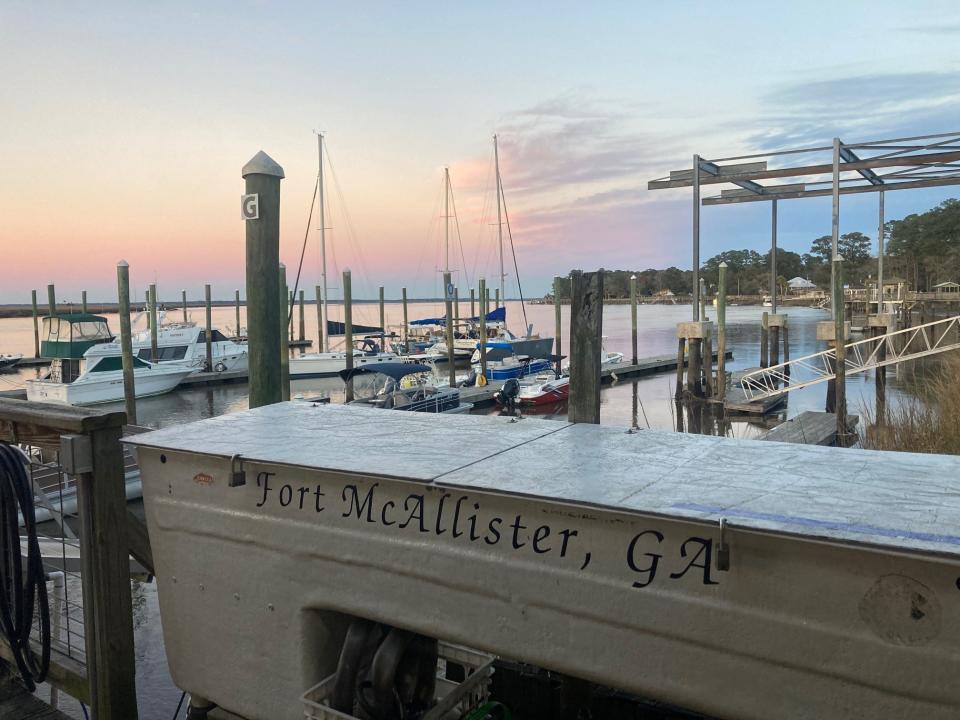
A quick check of their website revealed Tuesday nights feature half-price tacos and five-dollar house margaritas. No more wallowing in ponderous ecological despair—my dinner dilemma and existential crisis easily solved with Taco Tuesday!
If you haven’t eaten at Fish Tales, it is a treat. Located on a bend in the Ogeechee River, the family-friendly restaurant offers beautiful sunsets and chances to see dolphins. I checked out the dock and chatted with locals while I waited for my tacos, which were fresh, generously portioned and swiftly delivered by a bubbly teenager. I ate and drank nicely for $15.
Back at camp, though, I thought it might be a good idea to walk off some of those tacos. And margarita.
A sliver of a moon hung in the sky, lighting a memory from summer camp when our wilderness instructor told us even the smallest bit of moon on a clear night will illuminate a path. I should, then, be able to walk the Magnolia Trail without my headlamp.
I double-knotted my boots and hit the trail once more, this time in the dark.
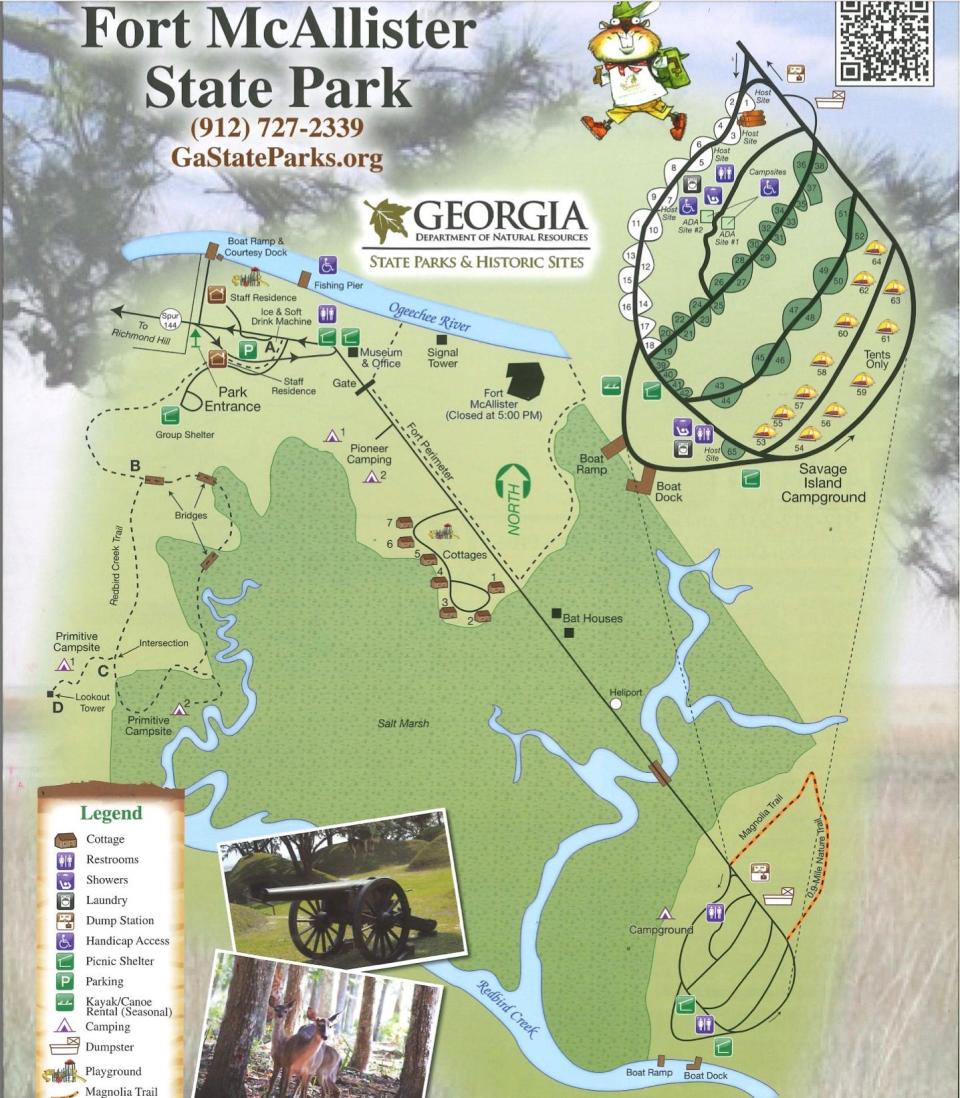
The moon was low in the west, so the first trail section was an exercise in feeling. I knew I was on, or off, it by how the ground felt beneath my feet. Being on the trail felt hard, like compacted earth. Straying from it, the ground was crunchy with debris.
Aside from my footfalls, the forest was surprisingly silent. The trees thinned as the trail pushed along the marsh’s edge, opening into a sky wide with stars and a tiny pink fingernail moon. It felt safe, comfortable, like this is exactly where I should be as often as possible. The moonlight and light breeze through the pine trees created a sense of connection, that I was not alone but among good company in the sleeping forest.
I was not at all alone and not all the forest asleep.
A snort, the snapping of small branches, leaves crunching and more snorting. Then silence. In the dim illumination maybe 20 feet away stood eight deer motionless on the trail.
The same ones from a few hours earlier, and here we were meeting once again. My stillness hid how excited I was. In our dark, awkward silence, I didn’t want them to be afraid and wasn’t sure how to proceed so as not to send them dashing into the woods. I stood, just like them.
We remained in this weird stand-off for a few moments. But I was aware that my bladder was becoming painfully full, and the only way to get to the bathhouse and my back to my tent was through the trail they were standing around.
Perhaps, their human habituation includes some understanding of English, I mused to myself. It doesn’t, of course, but maybe the deer would recall my voice from this afternoon when they weren’t afraid.
In a confident whisper I said:
“I am so glad we get to be here again, but I need to use this trail to return to my tent. I don’t want to scare you, but I need to walk where you are.”
The deer stood firm. And I waited, until breaking the final silence:
“Friends, I need to go to the bathroom and go to sleep, and I’m going to walk by you. My intention is not to harm you.”
I took a slow step forward, and the deer softened then one by one eased off the trail until their quiet silhouettes merged again with the forest.
And I made it to the bathroom without incident before crawling into my tent, smiling and thinking, maybe just maybe, a little magic did happen today. And even if it didn’t, it still felt magical, and I will be back again soon to enjoy the seclusion and nature of Fort McAllister State Park.
This article originally appeared on Savannah Morning News: Georgia's Fort McAllister State Park offers camping, hiking trails
